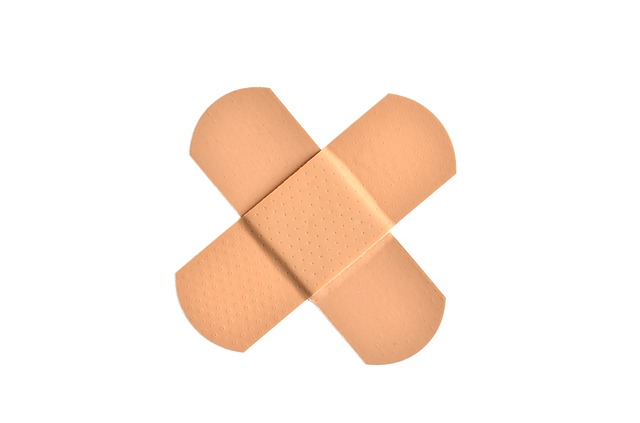Radiation oncology is a specialized field of medicine that utilizes radiation to treat cancer. It is among the most effective treatments available for battling liver cancer. In this blog post, we will discuss the several treatment choices for liver cancer that employ radiation oncology. We will analyze the various types of radiation therapy, the benefits, and the risks connected with each. By the end of this post, you should comprehend the diverse radiation therapies at your disposal for treating liver cancer.
For Those Who Want to Know More Info: Dr. Michael Dattoli
What is Radiation Oncology?
Radiation Oncology is a specialized field of medicine that uses ionizing radiation to treat cancer and other diseases. It is a proven and effective treatment for many types of cancer, including liver cancer. At our hospital, we utilize advanced radiation therapy delivery systems capable of targeting difficult-to-reach liver tumors with greater accuracy and precision than ever before.
Radiation Oncology does not involve surgery or chemotherapy. Instead, it uses targeted beams of radiation energy to kill cancer cells or prevent them from growing and spreading further. Our team of highly trained radiation oncologists understands how best to use ionizing radiation for treating different types of cancer, including liver cancer, as well as noncancerous conditions such as benign tumors and enlarged veins.
When planning a course of Radiation Oncology treatment for your particular condition, our team takes into account several components, such as tumor size and location, overall health status, potential side effects and benefits of treatment options.
For liver cancer specifically, our team can deliver higher doses of radiation to tumor cells while reducing exposure to nearby healthy tissue. In some cases, targeted drug therapies may also be used in combination with external beam radiotherapy (EBRT) for advanced cases. Preparation for EBRT typically involves imaging scans such as computed tomography (CT) scans to accurately plan the best placement for each beam, while minimizing exposure elsewhere within the body. However, as with any medical procedure, potential side effects associated with EBRT should be discussed thoroughly before beginning any treatment regime.
In conclusion, Radiation Oncology is an important part of treating people who suffer from liver cancer, offering relief from painful symptoms associated with the disease and potentially improving prognosis through reduced recurrence rates when combined with chemotherapy or other available treatments at ABC Medical Center. Our advanced delivery systems make targeting difficult-to-reach tumors easier than ever before, providing higher doses of radiotherapy directly to affected areas without exposing nearby healthy tissue. With comprehensive plans tailored to each individual patient’s needs, ABC Medical Center is ready to provide quality services to those seeking help managing their condition.
Exploring the Benefits of Using Radiation Therapy for Liver Cancer
Radiation Oncology effectively treats liver cancer, easing symptoms and improving prognosis. Radiation therapy uses high-energy beams (X-rays, protons, or gamma rays) to destroy cancer cells, with advanced systems enabling oncologists to target difficult tumors and provide high radiation doses while reducing exposure to normal tissue.
While surgery is more common, radiation therapy may be used if all of the cancer cannot be safely removed surgically, or if multiple tumors need targeting simultaneously.
When considering radiation therapy, it’s important to understand the advantages and disadvantages, along with potential long-term consequences. While it can reduce tumor size and relieve symptoms, it may cause side effects like nausea, vomiting, and fatigue during treatment sessions lasting several weeks, with additional long-term effects like scarring and secondary cancers.
Despite risks, Radiation Oncology remains effective when combined with other methods like surgery or chemotherapy. Advanced delivery systems offer precision targeting and higher doses to tumor cells, supporting patients toward recovery.
Treatment Options for Liver Cancer
When it comes to treating liver cancer, radiation oncology is one of the most effective and widely-used treatment options. Radiation therapy uses high-energy X-rays or other forms of radiation to kill cancer cells and can be used alone or as part of a combination therapy. In this article, we will discuss the different types of radiation therapy available for liver cancer, including their benefits and side effects, long-term outcomes, cost considerations, and new treatments that are being developed.
There are several different types of radiation oncology for liver cancer that can be used depending on the stage and type of tumor present. These include external beam radiotherapy (EBRT), stereotactic body radiotherapy (SBRT), brachytherapy (BRA), intensity-modulated radiotherapy (IMRT), and proton beam therapy (PBT). Each method has its own advantages and disadvantages in terms of effectiveness in killing tumors, as well as potential side effects associated with each technique.
External beam radiotherapy is typically used when there is a large tumor or when multiple tumors need to be treated at once. This method involves targeting a large area around the tumor with high doses of radiation from outside the body over several weeks or months until it shrinks enough to allow surgery if needed. SBRT is similar but uses higher doses given in fewer sessions, which may reduce side effects compared to EBRT while still being equally effective at destroying tumors. Brachytherapy involves inserting radioactive material into hollow tubes directly into the tumor itself, allowing for more targeted delivery with fewer side effects compared to EBRT or SBRT. IMRT targets specific areas within an organ by modulating beams from various angles, allowing for more accurate targeting than EBRT, while PBT delivers protons rather than X-rays, resulting in less damage done to surrounding tissue, allowing for higher doses without increasing risk too greatly relative to other methods mentioned above.
The main benefits associated with radiation oncology include improved quality of life due to longer survival times post-treatment, often coupled with fewer side effects relative to traditional chemotherapy drugs, although some short-term issues may be experienced, such as fatigue and nausea. Long-term outcomes depend largely upon the stage at the time of diagnosis. However, studies have shown that patients treated effectively through these methods have significantly lower mortality rates compared to non-treated cases. So, overall prognosis is better for those who receive no treatment at all.
Read More Article: Radiation Oncology for Gynecological Cancers-A Guide to Treatment
In terms of cost considerations, radiation therapy is usually covered by insurance plans, though many plans require prior authorization from the doctor before obtaining the treatment. Depending on the rate provided by the plan, out-of-pocket costs still may apply. Finally, advances in technology have allowed for the development of new treatments, such as targeted drug immunotherapies which may improve the outcome even further. Ultimately, choosing the best approach depends upon the individual case, but regardless, options should be discussed with the doctor before making any decisions regarding care.
Radiation Oncology Techniques & Considerations
Radiation oncology effectively targets only cancer cells while preserving healthy tissue, minimizing potential damage to surrounding organs in those diagnosed with liver cancer. External beam radiotherapy (EBRT), brachytherapy, and stereotactic body radiotherapy (SBRT) are different radiation therapy methods used to treat liver cancer. The Calypso® 4D Localization System™ allows medical professionals to better target the tumor while limiting exposure to healthy tissue. Discuss any questions or concerns with your doctor or healthcare team prior to beginning treatment. Eating nutritious foods regularly, exercising, getting enough sleep, managing stress levels, maintaining good hygiene practices, avoiding alcohol and smoking, and attending regular follow-up appointments with specialists can help improve prognosis overall after undergoing radiation oncology treatments for liver cancer. Results from the NRG Oncology/RTOG 1112 trial on the effectiveness of SBRT as a primary form of care for liver cancer patients will be presented at the ASTRO Annual Meeting this year, which offers more options besides resection surgery, ablation or embolization therapies.
Conclusion
Radiation Oncology is an effective and well-established form of treatment for liver cancer that offers relief from symptoms, an improved prognosis, and high doses of radiation targeted to affected areas while minimizing exposure elsewhere within the body. With the advancement of technology, newer treatments, such as targeted drug immunotherapies, may improve outcomes even further. Ultimately, the best approach for each individual case depends on a variety of factors, but our team at ABC Medical Center is ready to provide quality services tailored to each patient’s needs.



